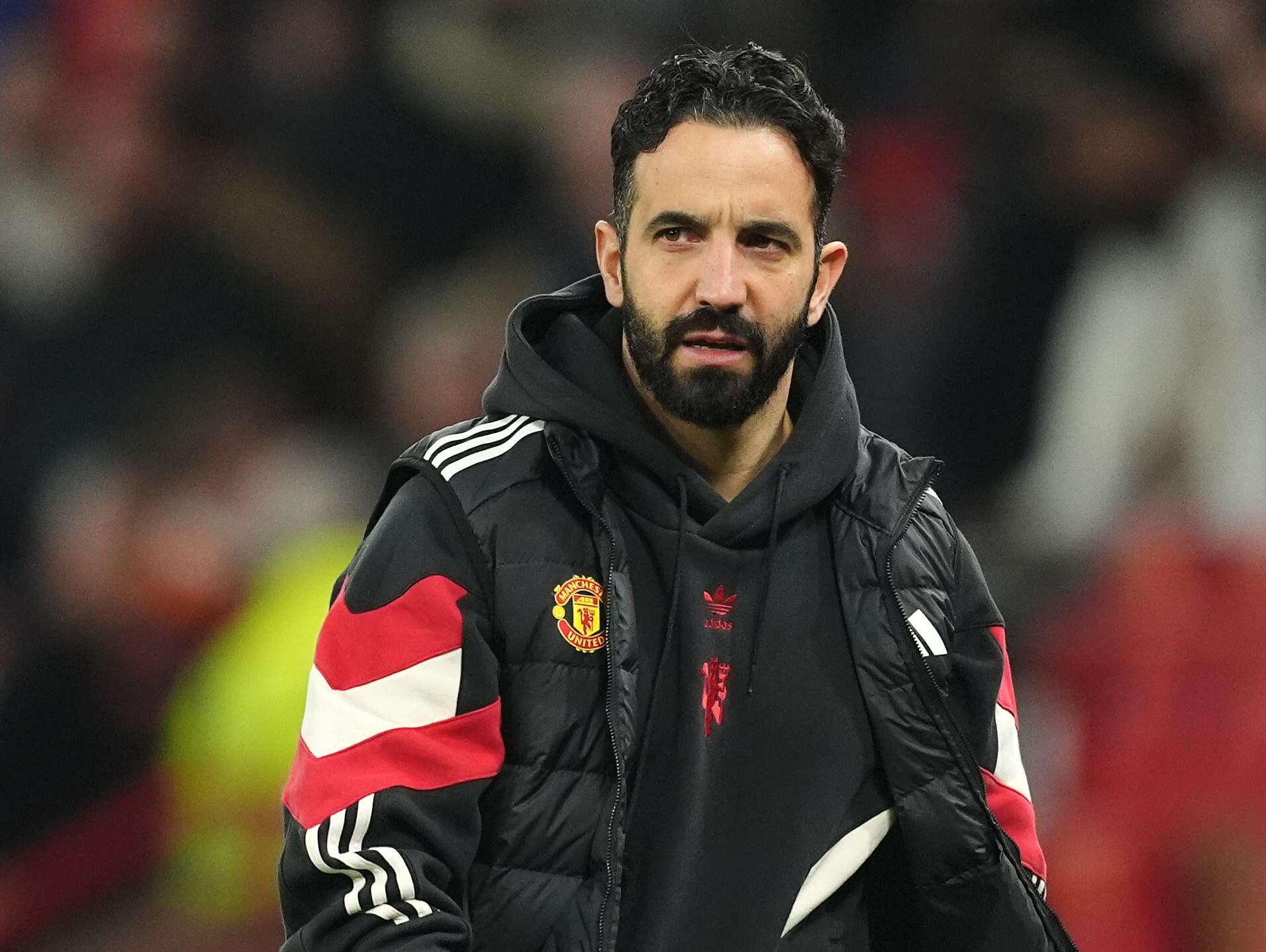German football sells its soul to chase the Premier League
So often an exemplar of fan-run football, the Bundesliga is changing its ways and chasing the Premier League's financial model. Stefan Bienkowski reports...
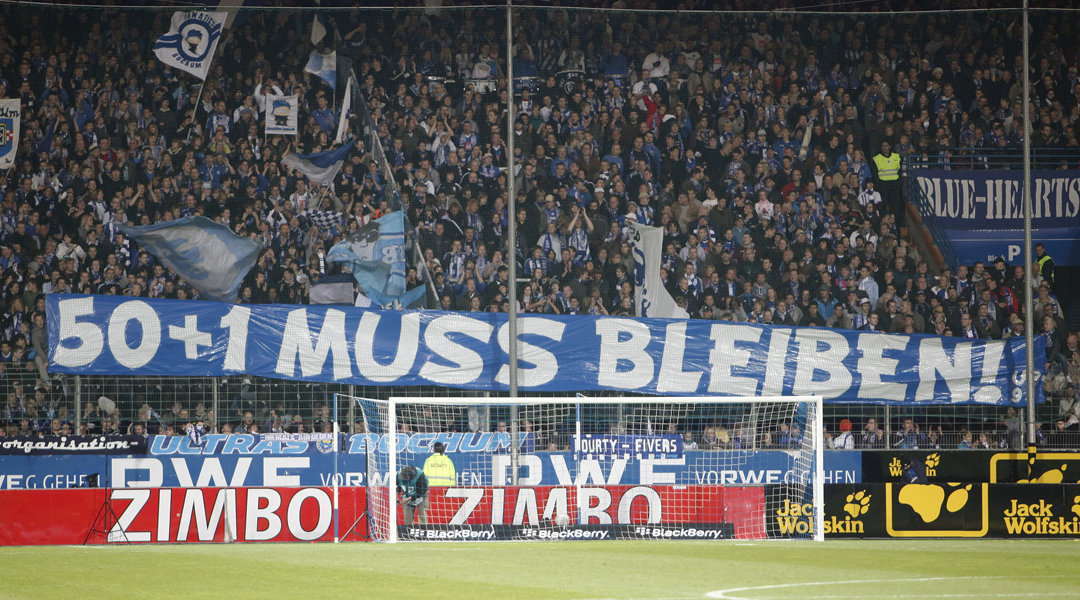
The Premier League’s vastly improved new TV deal will have effects beyond the British Isles. Not only will it empower English clubs to outbid their rivals, it will crucially change the manner in which German football conducts itself.
Such was the warning Christian Seifert, CEO of the German Football League, made clear this month. The Bundesliga’s TV contract will be renegotiated next April, with hopes of breaking the billion-Euro mark – but Seifert wonders if it’s worth it. “We cannot run blindly after the carrot England is dangling in front of us,” he told newspaper Die Welt. Even so, there are fans on terraces across the country who believe the glitz and glamour of the Premier League is tempting the German game to change itself – for the worse.
Game changers
More than perhaps any other major league, Germany has remained relatively faithful to the Saturday afternoon kick-off – specifically the 3:30pm matches covered in the Konferenz simulcast.
However, following Sky Sports’ success with Monday Night Football coverage of the Premier League, the DFL confirmed this month that from the 2017/18 season onwards, specific games would be moved to Monday evenings and Sunday afternoons.
The move might seem logical, simple or perhaps even overdue, until we consider the DFL’s position as recently as February of this year. "If you look at the kick-off times for the first and second division, then you can be sure that it would be difficult to accommodate further times," said Seifert.
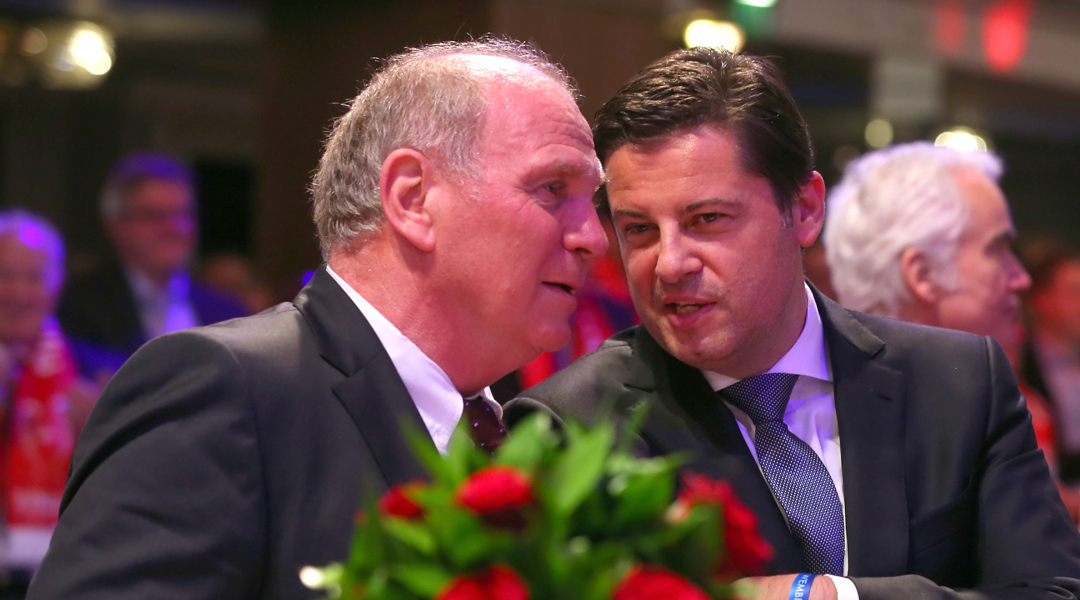
Within six months German football had performed a complete U-turn on the possibility of moving more games away from their formerly sacred Saturday slot.
Get FourFourTwo Newsletter
The best features, fun and footballing quizzes, straight to your inbox every week.
At the same time, certain German power-brokers have been making a renewed push towards a model that offered more exclusivity to pay-TV and less Bundesliga football on free-to-air programmes.
Sky Deutschland already have the rights to almost all live games, but there are those who would like to restrict broadcasts further to increase the pay-TV harvest.
In the future, shows like Sportschau (a German Match of the Day, but without the punditry and rolling from 6pm) could make way for more exclusive rights as fans are asked to dig deeper into their pockets.
"We have to follow the English path and bring more people into the pay-TV market,” announced Bayern Munich chairman Karl-Heinz Rummenigge this month. “We have to strengthen the pressure of competition in order to raise the price.”
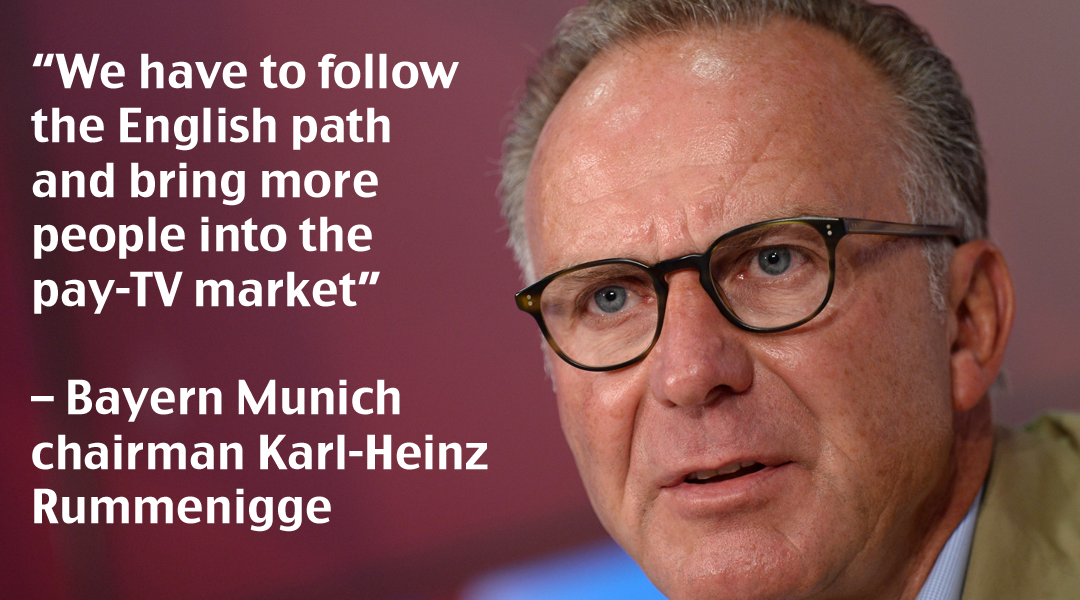
Overturning the majority
A kick-off at noon is horrible for away fans. You should have plenty of time before you go to the ground
Yet for many Bundesliga regulars, this could well spell the end of a league that used to offer opposition to the free-market tactics of modern football – and in turn quickly earned the admiration of football fans across the world. One such man is Marc Quambusch, a spokesman for the fan-run network “Kein Zwanni” which was set up in 2010 to mobilise fans across Germany to protest increased ticket prices. Like many, he laments the direction German football has recently taken to catch the Premier League.
“I am not too optimistic,” he tells FourFourTwo. “It’s terrible. Football should not be played during workdays. Also on Sunday noon? What are we talking about? A kick-off at noon is horrible for away fans. You should have plenty of time before you go to the ground.”
Quambusch puts the accelerated changes down to the diminishing authority of the league’s famous 50+1 rule. The regulation means that with a few pre-existing exceptions (largely ‘works teams’ like Bayer-owned Leverkusen and VW-backed Wolfsburg), 50% plus one share of any club will always be majority owned by a non-commercial, non-profit parent operation which can then dictate the direction in which it is run.
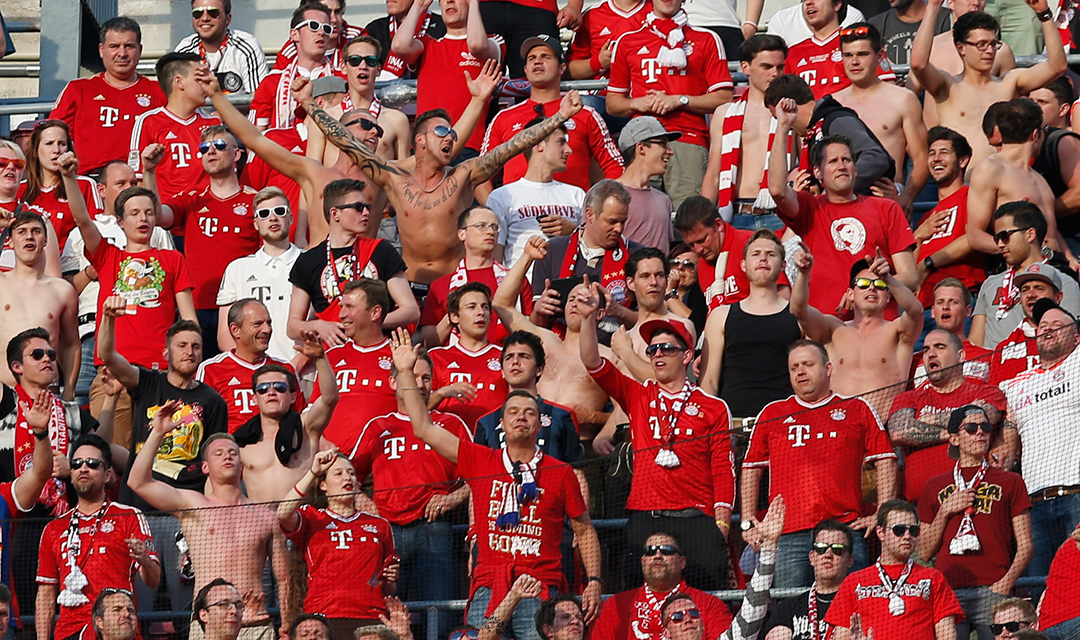
As member clubs rather than private companies, this mean the Bundesliga entrants can in theory fight the temptation of modern TV deals. Yet the ruling was altered this year to state that an individual or company could own a Bundesliga club if they had substantially supported the club for a period of 20 years.
The ink had yet to dry on the new law before reports claimed Martin Kind, president of Hannover 96, would head up a group of investors intending to buy the club outright. Suddenly German clubs had begun to look a lot more like their English counterparts.
Paradise lost
“I have many English friends and it’s way better in Germany,” insists Quambusch. “But times are changing, we have clubs that are exceptions from 50+1 and many other clubs are bypassing the rule. It is possible that the 50+1 rule will fall, which will, in my opinion, be the end of everything that is worth fighting for.”
Hailed across the sport as the one shining example of fan-run football utopia, the Bundesliga is now at risk of joining England, Spain and the rest of Europe on a slippery slope of demand-driven economics.
The end of 50+1 will be the end of everything that is worth fighting for
Fans in the stands may appreciate the ideal kick-off times and low ticket prices, but those in the boardrooms are sweating over ways to catch England’s vast riches before the Bundesliga is plundered for all its talent. Yet in doing so, German football may ultimately lose its one, defining characteristic: being a league run for the enjoyment of those who walk through the turnstiles every week.
Gary Parkinson is a freelance writer, editor, trainer, muso, singer, actor and coach. He spent 14 years at FourFourTwo as the Global Digital Editor and continues to regularly contribute to the magazine and website, including major features on Euro 96, Subbuteo, Robert Maxwell and the inside story of Liverpool's 1990 title win. He is also a Bolton Wanderers fan.
